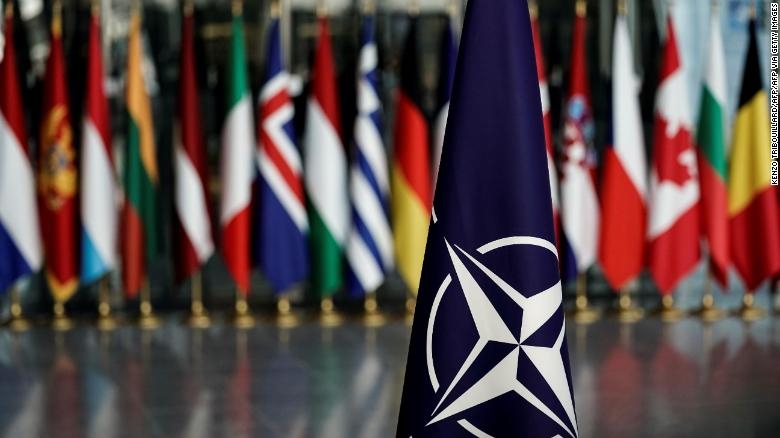Nato leaders gather as alliance’s cracks show

Nato leaders are to meet outside of London for formal talks on Wednesday, as they gather to mark the military alliance's 70th anniversary.
The talks will take place at a luxury hotel near Watford and follows receptions held Tuesday at Buckingham Palace and Downing Street.
The two-day summit has so far been overshadowed by tension between allies.
Tuesday saw sharp exchanges between US President Donald Trump and French President Emmanuel Macron.
The highly choreographed anniversary gathering, intended to show unity, has been unable to hide deep differences between Nato members, BBC Defence Correspondent Jonathan Beale reports.
Although the 29-member bloc's future is not in doubt, there are disagreements over Turkey's recent military action in northern Syria, relative levels of military spending by members and recent controversial comments by President Macron that the alliance is "brain dead".
Leaders will meet for a "family photograph" and a three-hour formal meeting which is expected to cover issues such as cyber-attacks and the strategic challenge posed by China.
UK Prime Minister Boris Johnson, the host, is expected remind Nato leaders that their commitment to defend one another is at the heart of the alliance and protects "nearly a billion people" under a principle of "one for all, and all for one".
What happened on Tuesday?
The first day of the special anniversary summit saw tensions bubble to the surface.
Donald Trump and Emmanuel Macron met for talks and in a press conference sparred over Nato's role, Turkey, and Islamic State group (IS) fighters.
Ties between Mr Trump and Mr Macron were already strained amid a dispute over taxes and trade, and comments from the French president last month that the US commitment to the alliance was fading.
Mr Trump had earlier on Tuesday hit back by saying the French leader had been "very disrespectful" by describing Nato as "brain dead" in what he said were "nasty" comments.
On Tuesday, Mr Macron also attended a meeting in Downing Street with Turkish President Recep Tayyip Erdogan, German Chancellor Angela Merkel and UK Prime Minister Boris Johnson.
Leaders then gathered at Buckingham Palace and Downing Street for official receptions.
President Trump and Mr Johnson also held unscheduled bilateral talks on Tuesday.
What is the background to tensions?
Nato started out in 1949 with just 12 countries as members but having now expanded to a bloc of 29 it is increasingly difficult for the alliance to project a united front.
Two key issues have loomed over this summit: defence spending - a longstanding issue of concern for the US, which militarily dominates the group - and relations between Turkey and other member states.
Before departing for London, Turkey's President Erdogan said he would oppose a Nato defence plan for the Baltic region if the bloc did not support Turkey over its fight against Kurdish groups in Syria it considers terrorists.
But other leaders, including Mr Macron, have made clear they oppose such a move, not least because Kurdish-led forces drove IS militants out of a quarter of Syria with the help of a US-led multinational coalition.
"When I look at Turkey, they now are fighting against those who fought with us shoulder to shoulder against [IS]," the French president said on Tuesday.
Turkey's relations with other Nato members have been strained since its October offensive in Kurdish-controlled areas of northern Syria.
Mr Erdogan's decision to buy a Russian missile defence system has further exacerbated tensions.
On Tuesday Mr Trump said he was "looking at" imposing sanctions on Turkey for buying the S-400 system, while Mr Macron asked: "How is it possible to be a member of the alliance... and buy things from Russia?"
What about the spending row?
Since becoming US president in 2016, Donald Trump has frequently and forcefully criticized how much other Nato allies spend on defence.
Nato Secretary General Jens Stoltenberg announced increased spending commitments ahead of the UK meeting and discussed the matter with President Trump on Tuesday.
"We are making real progress, most importantly on the burden sharing. And your leadership on defence spending is having a real impact," Mr Stoltenberg said at an appearance alongside the US president.
He said Canada and European allies had added $130bn to defence budgets since 2016 and that this number would increase to $400bn by 2024.
Nato estimates for 2019 show there are now eight countries - in addition to the US - meeting the target agreed by all Nato members to spend 2% or more of their gross domestic product (GDP, a measure of economic output) on defence.
